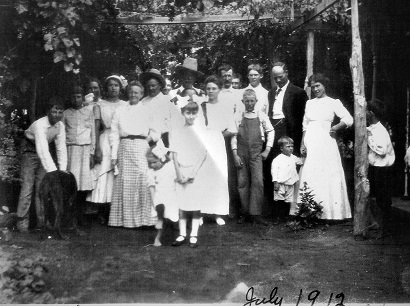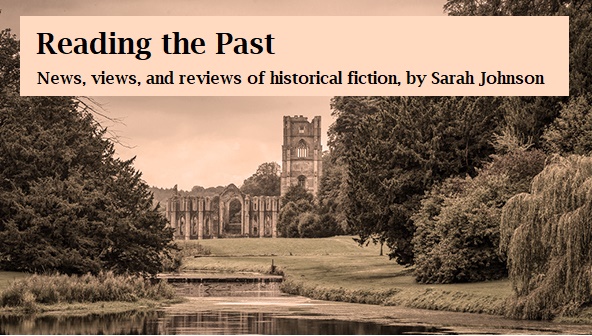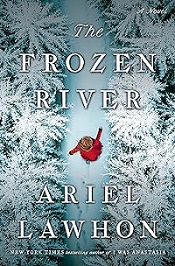Teresa H. Janssen is here today with a post about transforming family history into historical fiction. Her grandmother, Josie Belle Gore, inspired the main characters of her debut novel, The Ways of Water, which is published today. The photos below are from her family archive.
~
Telling a Family Story
Teresa H. Janssen
Many of us are astounded by the courage, tenacity, and optimism of our ancestors. Other times, after learning of their disappointments and misfortune, we cringe at their choices and misguided enthusiasm, sometimes due to a lack of information or resources. Like us, they made decisions based on the best of their knowledge. I experienced both wonder and despair while doing research for my debut historical novel,
The Ways of Water, inspired by the early life of my grandmother, Josie Belle Gore.
It all began on a windy January day when I arrived at New Mexico's Jornada del Muerto (southeast of Truth or Consequences) in search of the graves of my great grandparents. All that I could find were a few wooden posts in the lonely desert, remnants of the cemetery of Cutter, now barely a ghost town, but once a thriving railroad and mining community of three thousand inhabitants. I was overcome by the tragedy of my great grandmother's death there in 1916 at the age of thirty-six. She left seven children behind, one an infant; her third child, my grandmother.
 |
| The Gore Siblings |
While standing in the blowing sand that day, I remembered a lecture by Maya Angelou that I attended when I was sixteen years old. She had spoken of the sacrifices of our ancestors, made in hopes of better lives for future generations. I didn’t want my forebears’ trials to go unappreciated or forgotten.
As I began to research and write their tale, I became aware that there was a larger story to be told. The Jornada del Muerto is now littered with ghost towns, with few trains passing through. Historic sections of Las Cruces and Tucson have been razed. Bisbee, Arizona is a fraction of its former size. One of our family ranches is now part of the White Sands missile base.
I began by researching the boom-and-bust opportunities that had lured many to that region—the acquisition of land by mining companies, railroads, ranch syndicates, and homesteaders—often made possible by unfair treaties, land seizures, and the displacement of indigenous peoples.
 |
| Gores and Grahams, Jornada del Muerto |
I was astounded by the social, political, and cultural changes my grandmother and her family lived through. My great grandfather was a steam locomotive engineer and my great grandmother, a seamstress. I researched the technological breakthroughs during the first two decades of the twentieth century—faster trains with better safety standards, the growing popularity of the Singer sewing machine, expansion of Western Union and its telegraph lines, advent of the automobile with mass production of the Model-T, increased electrification of towns and household appliances. These changes were as liberating and unsettling for many who lived during this time, as recent technological shifts are for some of us today.
My grandmother lived in Chihuahua during the onset of the Mexican Revolution and survived two epidemics—tuberculosis and influenza. She was a teen during WWI and then chopped off her hair and the hem of her skirt in the heady post-war Twenties. She witnessed the advent of women’s suffrage, as well as cultural shifts during prohibition. As I learned more about her experiences, my admiration for her grew. A history geek, it was at times hard for me to take a pause in the research to get back to writing the story.
 |
| Josie Gore hiking near geyser on honeymoon, 1924 |
The Ways of Water originated as fragments of family oral history, yet to bring it to life, I decided to tell the story in first person, from the perspective of my grandmother. I had interviewed her while she was still living and had a collection of notes to get me started. I soon became aware that I had not asked enough questions. There were gaps in the timeline, too little detail, vagaries I had to guess at, and sometimes different versions of an event. I realized that to create an account with voice and emotion, I would need to write my grandmother’s early life as historical fiction. At that point, I had the liberty to create scenes and imagine conversations, and alter names, locations, and time, when necessary, to develop an engaging and cohesive narrative.
The Ways of Water tells the story of Josie Belle Gore, who, after her family was separated by circumstances beyond her control, was forced to make her way alone through the desert West to eventually arrive in San Francisco in the early 1920s. This is a story of loss and redemption, hope and forgiveness, set in the rugged beauty of the Southwest during a turbulent period of American history.
Excerpts, The Ways of Water
"My story is twined, like rope, with that of my kin. The first strand began to fray when Mama, a city girl from Austin, fell in love with a Louisiana railroad man. As Papa ran the steam locomotives across the great desert of the West, Mama followed him. Steam engines always follow water, and we did, too."
“Life, like a river, can take some sharp twists and turns. People can shift as much as a water’s course. There are reasons I broke my promises. I want them to be known," says Josie Belle Gore as she begins her tale.
Bio:
 |
author Teresa H. Janssen
(David Conklin Photography) |
Teresa H. Janssen studied history and French at Gonzaga University and has an M.A. in Linguistics from the University of Washington. She taught for over twenty years in refugee programs, higher ed, and public high school. Her fiction and essays have appeared in a variety of literary journals, including
Zyzzyva,
Chautauqua,
Eastern Iowa Review, and
Under the Sun, and in the anthologies,
Art in the Time of Unbearable Crisis and
Offerings: A Spiritual Poetry Anthology. She was a finalist for Bellingham Review’s Annie Dillard Prize and won the Norman Mailer/NCTE Award in nonfiction. She lives with her husband in Washington state where she writes, hikes, and tends a small orchard. She can be found online at
www.teresahjanssen.com.
Book details:
The Ways of Water: A Novel by Teresa H. Janssen
Published by She Writes Press, Nov. 7, 2023
ISBN: 978-1-64742-583-8




















